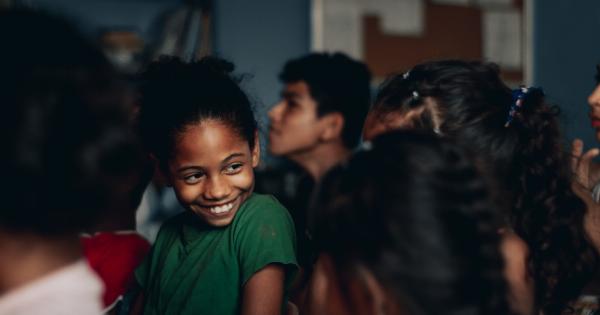Racism is a deeply ingrained problem that continues to plague our society. It manifests itself in various forms, from subtle biases to overt discrimination.
While many efforts have been made to address this issue, there is still a lot we don’t know about how racism develops and how it can be effectively combated.
A recent psychological experiment sought to shed light on these questions by investigating the early origins of racism in children.
The study aimed to understand whether racial biases are innate or learned and to explore potential strategies for reducing prejudice at an early age.
The Setup: Creating a Multiracial Environment
The experiment was conducted at a preschool, which served as an ideal setting to observe the interactions between children belonging to different racial groups.
The researchers carefully selected a diverse group of children—some white, some black, and some from other ethnic backgrounds—to create an environment that reflected real-world diversity.
The next step was to devise a series of activities that encouraged the children to interact with one another. These activities included playing games, solving puzzles, and engaging in group discussions.
The goal was to observe how the children naturally gravitated towards or away from individuals from different racial backgrounds.
Surprisingly Open-Minded
The results of the experiment were astonishing. Contrary to popular belief, the researchers found that children in the preschool exhibited remarkably open-minded attitudes towards individuals from different racial backgrounds.
During the various activities, the children readily interacted with their peers, regardless of race. They happily collaborated in solving puzzles, shared their toys, and engaged in animated discussions without showing any noticeable racial bias.
This finding challenges prevailing notions that children are inherently racist.
Underlying Factors: The Role of Parenting and Environment
While the study revealed encouraging findings, it also pointed to the crucial role of parenting and environmental factors in shaping children’s attitudes towards race.
The researchers discovered that children who had parents with diverse friend circles and actively promoted inclusivity at home exhibited the least racial bias.
On the other hand, children who had been exposed to discriminatory behaviors or heard prejudiced comments from adults demonstrated a greater tendency towards racial bias.
This highlights the importance of parental influence and early exposure to diversity in combating racism.
Parents play a critical role in shaping their children’s values and attitudes, and it is essential to foster an environment that celebrates differences and promotes equality.
The Impact of Education and Media
Education also emerged as a significant factor in reducing racial biases among children.
The study found that children who had received lessons on diversity, inclusion, and the history of racial inequality were more likely to display tolerant attitudes towards individuals from different racial backgrounds.
Furthermore, exposure to positive portrayals of diverse characters and stories in children’s media was found to have a profound impact on reducing racial bias.
When children see individuals from different races represented positively and portrayed as equal, it challenges their preconceived notions and fosters a more inclusive mindset.
Addressing the Results: Implications for Intervention Programs
These findings have significant implications for intervention programs aimed at reducing racism among children. The study suggests that a multi-faceted approach is necessary, combining efforts from parents, schools, and the media.
Parent education programs can provide guidance on how to teach children about diversity, inclusivity, and equality.
These programs can also offer resources for parents to engage in meaningful conversations about race and to actively challenge and correct any prejudiced beliefs or behaviors they observe in their children.
Schools can incorporate lessons on diversity and racism into their curriculum from an early age.
By integrating these topics into various subjects, such as history, social studies, and literature, schools can promote a comprehensive understanding of the issues and foster empathy and respect towards individuals from different racial backgrounds.
Media companies can take a proactive role in creating content that showcases diversity and challenges stereotypes.
By featuring a diverse range of characters and storylines that highlight inclusivity, media can play a crucial role in shaping children’s perceptions and attitudes towards race.
Conclusion
While the problem of racism persists, this psychological experiment provides hope and valuable insights into combating racism among children.
The surprising results demonstrate that children are not inherently racist but can be influenced by their environment, parenting, education, and media.
By understanding these influences, we can implement targeted interventions and policies that promote inclusivity, diversity, and equality at an early age.
With concerted efforts from parents, schools, and the media, we can work towards a future where racism is eradicated.






























